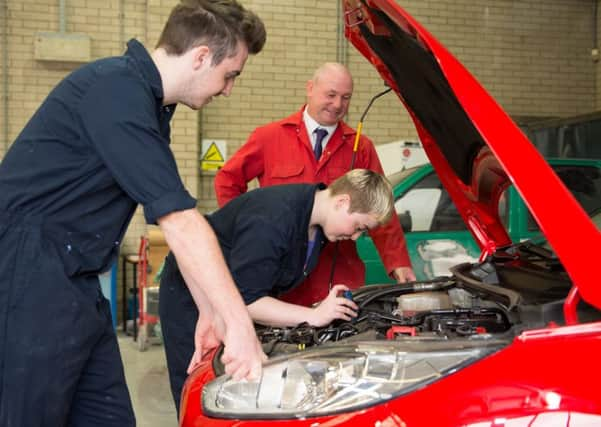YP Comment: Questions over apprenticeship levy


Put simply, too many school leavers, despite recent progress, do not have the qualifications to enable them to prosper in a hi-tech, digital first global economy.
Yet, given this economic necessity and a recent report which exposed the inconsistencies in higher education policy because of the meddling of no fewer than 48 secretaries of state over the past 30 years, it’s even more important that the new apprenticeship levy – which sees larger companies pay money into a central pot which they can then access for the training of new recruits – benefits the whole country.
Advertisement
Hide AdAdvertisement
Hide AdJustine Greening, the Rotherham-born Education Secretary, maintains that this scheme will make a radical difference to the Government’s social mobility agenda, and this is welcome, but inevitably the biggest beneficiaries will be those already prosperous areas, like London and the South East, which have the greatest preponderance of wealthier companies who come under the levy’s remit.
In contrast, less dynamic areas are those towns and cities which have the greatest proportion of ‘neets’ – young people not in education, employment or training – and both Bradford and Middlesbrough are amongst hotspots, according to the respected IPPR think-tank, where the rate of youth joblessness is in excess of 25 per cent.Given the emphasis that Theresa May and her ministers attach to the Prime Minister’s One Nation agenda, and the belief this well-intended scheme will actually accentuate the North-South divide, it’s important that this ambiguity is addressed while also ensuring that the new apprenticeships are genuinely fulfilling – and not a cover for cheap labour. Over to you, Ms Greening, your response is awaited with interest.
Power struggles: Can May unite the Kingdom?
UNDER Theresa May’s leadership, Britain is now destined to leave one union – the European Union. Now the Prime Minister’s challenge is to ensure that she does not preside over the collapse of an union which goes to the very core of this country – the United Kingdom. She has her work cut out. Northern Ireland devolution is in deadlock after rival parties failed to reach agreement on power-sharing – their rigid inflexibility has the potential to create a leadership and security vacuum – while the Scottish Parliament is expected today to endorse a second referendum on the divisive issue of independence.
And, whatever the Prime Minister says or does, it’s unlikely to appease Nicola Sturgeon as Scotland’s First Minister continues to challenge the outcome of the 2014 vote on independence and last year’s UK-wide poll which backed Brexit.
Advertisement
Hide AdAdvertisement
Hide AdMore’s the pity. On the steps of 10 Downing Street immediately after her appointment, Mrs May reaffirmed her commitment to the UK. Within 48 hours, she had undertaken a courtesy visit to Edinburgh and the Prime Minister held further talks with the increasingly intransigent First Minister yesterday. These do not appear to be the actions of a Prime Minister who does not care about Scotland and the rest of the United Kingdom. Quite the opposite. This is the work of a premier who is so committed to uniting the UK, and keeping the whole Kingdom together, that she’s putting the devolved nations before equally important English regions like Yorkshire.
Church in action: 10,000 acts of kindness
THE Archbishop of York is understandably proud of his online giving charity, Acts 435, in which Christians, and others, donate money which is then passed to the most vulnerable parishioners and families to help acquire specific items. Set up by Dr John Sentamu seven years ago, it has just supported its 10,000th person – further proof that the Archbishop is one of those all too rare figures in public life whose actions invariably speak louder than his words of wisdom.
Yet, typically, he’s not satisfied. Though 250 churches have supported this initiative, he now wants 1,000 to embrace an initiative – Christianity in action – so Acts 435 can make a bigger difference to the lives of the poor and showcase the Church of England’s positive role in local communities across the region. Without leaders like the indomitable Dr Sentamu recognising the need for such schemes and acting accordingly, both Yorkshire – and the Church – would be much poorer places.